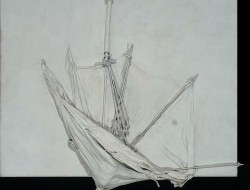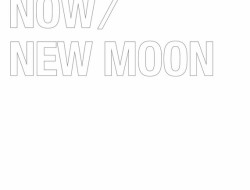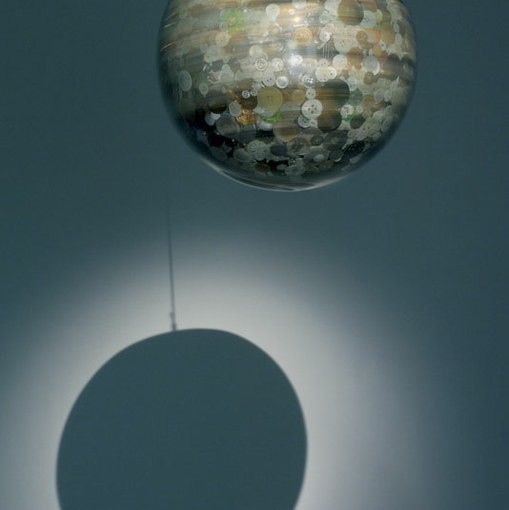Creating objects and installations, Edit Oderbolz seeks inspiration in the aesthetics of casual objects from the 1960s, 70s, and 80s. In her work, the artist recycles materials, modyfying them according to her own definition of handicraft. For this repertory, she uses the term ‚kitsch romanticism’.The title of the exhibition,
Dancing on the roof of my house, constitues a certain metaphor of going beyond the context, from which the art-related objects and ideas derive. The artist samples them freely, finding their new meanings. Her installations are obviously inspired by design, concrete art, conceptualism or modernist architecture, creating a reduced, void of coquetry, even minimalist quotation of the past. Her inclination for colorful textiles, neon lights, brocades, tinkering and handicraft, is filled with nostalgy, tenderness and longing for the domesticated aesthetics of space, that one can find only in childhood. While searching for a new formula for her objects, the artist adds a decorative, even rapacious dimension to everyday things, made of ordinary, sometimes trashy materials.
Edit Oderbolz – born in 1966 in Stein am Rhein in Switzerland, currently living and working in Basel; she has participated in many group (e.g.: Parabolica Spaces, Berlin; Kulturzentrum Kammgarn, Schaffhausen; Galerie de multiples, Paris; Ausstellungsraum Greifswalder Str. 212, Berlin; Centre d’Art, Biel/Bienne; Centre d´art contemporain d´Ivry – le Credac, Ivry sur Seine; Ausstellungsraum Klingental, Basel; Kunsthaus Baselland, Basel ) and solo shows (e.g.: Kunstmuseum Thun; Museum für Gegenwartskunst – Emanuel Hoffmann-Stiftung, Basel; Laurin, Zurich; Galerie Mark Müller, Zurich). Her latest exhibition Don’t Look Back in Anger is a result of the cooperation beween Kunsthaus Lagenthal and CoCA Znaki Czasu w Toruniu.
 The Institution is funded from the budget of Toruń Municipality
The Institution is funded from the budget of Toruń Municipality


